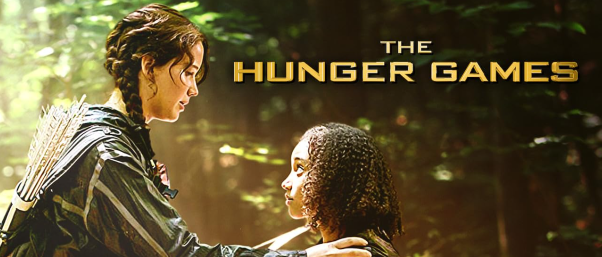On Nov. 17, 2023, the fifth installment of the multi-billion dollar “Hunger Games” movie franchise, “The Hunger Games: The Ballad of Songbirds and Snakes” is set to be released in theaters. It’s an adaptation of Suzanne Collins’ prequel to “The Hunger Games,” released over a decade ago.
The first novel in the series, “The Hunger Games,” was published on September 14, 2008, and changed the young adult genre forever. After the release of the 2008 novel, it became an instant bestseller and was even named as one of the best books of 2008 by Publishers Weekly. It was a smashing success and irrevocably changed the course of the industry.
The dystopia genre wasn’t unheard of in the book industry with the success of books like “Nineteen Eighty-Four” by George Orwell, “The Handmaid’s Tale” by Margaret Atwood and “Fahrenheit 451” by Ray Bradbury. While all these books, among many others, were accomplished works, none of them would be found in the young adult section of a bookstore and none of them were geared towards teenagers; “The Hunger Games” changed the status quo of the time.
By March 2009, the rights to a film adaptation were sold and by Feb. 2010, the first “Hunger Games” novel had sold more than 800,000 copies. It was the first young adult dystopian series of its kind and with the massive success of it, the book industry took note. In the following years, dystopian books were churned out left and right with many being mega-successful franchises like that of the “Hunger Games” series.
“Divergent” by Veronica Roth and “The Maze Runner” by James Dashner are just two examples of this sensation. Both book series became bestsellers and were adapted into movies, just like “The Hunger Games.” In 2014, the two series were topping the charts together.
Countless of young adult dystopian novels were released in the following years that included similar tropes to the “Hunger Games” series, like love triangles and the “not like other girls” trope in the female protagonist. Young adult dystopian series that follow a similar structure and tropes include “The Selection” by Kiera Cass, “Shatter Me” by Tahereh Mafi, “Matched” by Allie Condie and “Delirium” by Lauren Oliver. These series, among many others, saw massive success after the mania that Suzanne Collins created with “The Hunger Games.”
There was a large market for dystopian young adult books after the first “Hunger Games” novel, but the book industry isn’t the only industry that profited due to this craze. With the success of each book in the series, “The Hunger Games,” “Catching Fire” and “Mockingjay,” came a movie adaptation for each, apart from “Mockingjay” which was split into two movies. The five-part movie franchise has grossed over $2.9 billion at the box office with only a collective budget of $495 million, making it the 21st highest-grossing movie franchise of all time.
Even if they didn’t share the same multitudes of success as “The Hunger Games,” there were still a significant amount of production companies vying for the film rights to any dystopian young adult novels they could find. “The Darkest Minds” by Alexandra Bracken, “The Fifth Wave” by Rick Yancey, “The Host” by Stephanie Meyers and “The Selection” by Kiera Cass are dystopian young adult novels that, at the very least, had their rights bought to be adapted if not successfully turned into a movie. “Divergent” and “The Maze Runner” are just the two-standout book-to-movie adaptations that garnered the most coverage in the media after the “Hunger Games” craze.
Not only were there a multitude of books being written that mimicked Collins’ trilogy, but there were also a similar number of books being picked up to turn into movies as an attempt for studios to replicate the hype surrounding the “Hunger Games” series.
A decade after the release of the final installment of the “Hunger Games” series “Mockingjay,” Collins released a prequel titled “The Ballad of Songbirds and Snakes.” Moving away from the protagonist being Katniss Everdeen, this novel follows Coriolanus Snow, known as the ruthless President Snow in the original series. It takes place 64 years before the first “Hunger Games” novel and follows Snow’s descent into the character the audience already knew.
Despite the decade between each book’s release, the announcement of “The Ballad of Songbirds and Snakes” amassed an insane amount of hype and showed that the franchise remains relevance and an amount of timelessness. There was so much hype surrounding the novel that the rights for a film adaptation were picked up before the novel was even released. Deadline announced that Lionsgate was working with Collins to adapt “The Ballad of Songbirds and Snakes” in April 2020 when the novel wasn’t set to release until May 19, 2020.
Lionsgate was so confident that the prequel novel would do well that they didn’t wait for it to be released and see the public’s reception before acquiring the rights – and they were right. “The Ballad of Songbirds and Snakes” sold 500,000 copies in its first week and reignited the hype for the franchise.
As of right now, the “Hunger Games” series has spent 296 weeks — almost six years — on the New York Time’s Children’s Series Bestseller List. The series has sold over 100 million copies and has been translated into 26 different languages. It continues to be relevant and has proved itself to be one of the most innovative novels of this generation. “The Hunger Games” by Collins changed both the book and movie industry, and its impact can still be seen today.
Mary DeCarlo can be reached at [email protected].



















